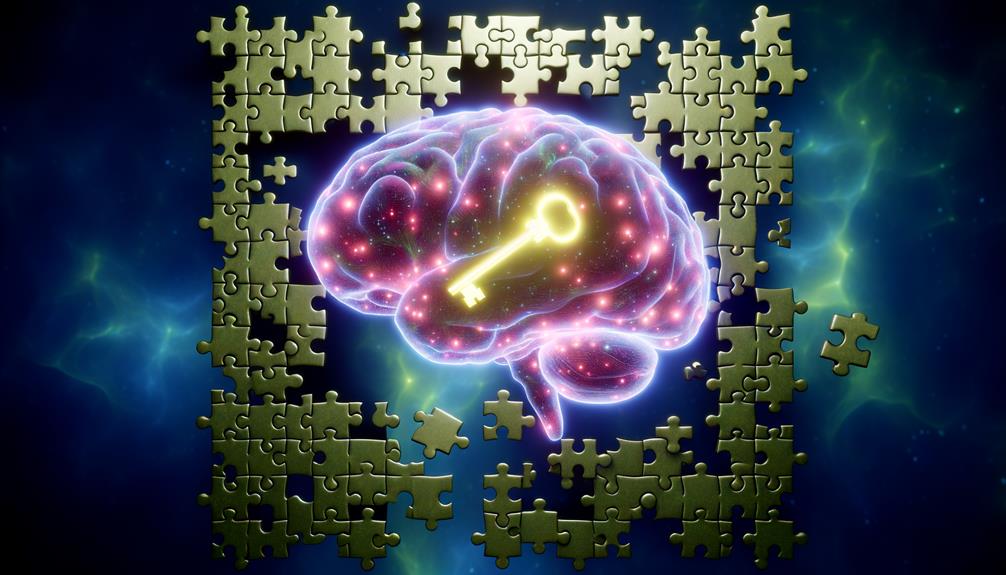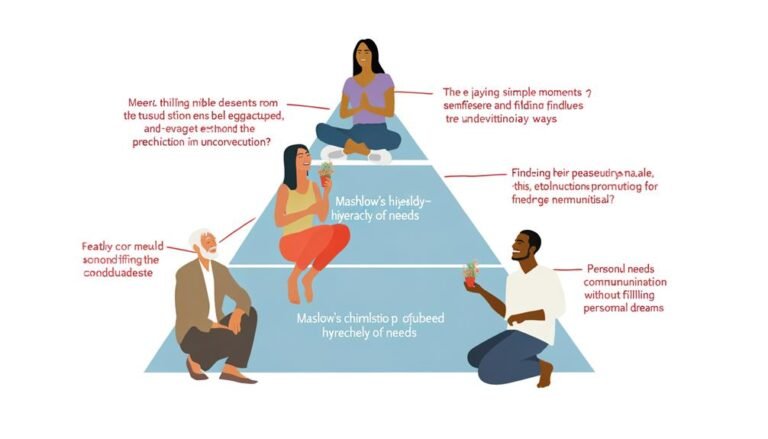Unlocking the Brain's Mysteries: Solutions Revealed
As we explore the brain's intricate pathways, we are met with an enigmatic puzzle waiting to be solved.
Imagine a scenario where the brain's ability to adapt and rewire itself, known as neuroplasticity, holds the key to unlocking hidden potentials within all of us.
The promise of understanding how this phenomenon can be harnessed for cognitive enhancement beckons us towards a future where the brain's mysteries are on the brink of revelation.
Join us on this journey as we unravel the secrets that lie at the crossroads of neuroscience and human potential.
Key Takeaways
- The complexity of the brain remains a challenge despite ongoing research efforts.
- Effective learning strategies and sufficient sleep enhance cognitive function.
- Doubt and questioning are essential for critical thinking and brain efficiency.
- Behaviorism applications offer practical solutions for behavior modification.
Learning Strategies for Cognitive Enhancement
Unlocking the secrets to optimal cognitive function through tailored learning strategies is imperative for enhancing brain performance. Memory retention plays a crucial role in cognitive development, allowing individuals to store and retrieve information effectively.
By implementing strategies such as spaced repetition and mnemonic devices, we can enhance our ability to retain information over the long term. Understanding the mechanisms behind memory encoding and retrieval can offer insights into maximizing cognitive potential.
Additionally, fostering a growth mindset and engaging in continuous learning can positively impact cognitive development. By prioritizing effective learning strategies that cater to individual needs, we pave the way for improved memory retention and overall cognitive function.
The Power of Questioning
Exploring the cognitive benefits of questioning unveils a fundamental aspect of human curiosity and intellectual advancement. Questioning fosters critical thinking by encouraging us to analyze information, evaluate evidence, and consider multiple perspectives. This process of inquiry stimulates problem-solving skills, as it prompts us to identify issues, generate solutions, and make informed decisions based on reasoning.
Doubt, a natural byproduct of questioning, challenges assumptions and drives us to seek deeper understanding. Descartes' emphasis on doubt highlights its role in refining thought processes and expanding knowledge.
Humans, inherently curious beings, are hardwired to question, driving exploration and discovery. By engaging in questioning, we not only enhance our cognitive abilities but also enrich our understanding of the world around us.
Behaviorism in Brain Function
The application of behaviorism principles in understanding brain function reveals fundamental insights into stimuli and responses shaping behavioral patterns. By focusing on stimuli response techniques, behaviorists can analyze how external factors influence behavior. Behavior modification strategies, such as reinforcement and punishment, play a crucial role in shaping and altering behaviors.
Through the lens of behaviorism, the brain is seen as a processor of stimuli that generates responses, simplifying the understanding of complex behavioral processes. Parenting techniques like time-outs and applications in self-help and addiction treatments stem from these principles.
Skinner's approach, emphasizing the relationship between stimuli and responses, has led to practical results in various fields by providing a framework for behavior modification and understanding human actions.
Brain Research Advancements and Impacts
Recent advancements in brain research have significantly impacted various fields, paving the way for groundbreaking discoveries and innovations. These advancements have led to personalized therapies tailored to individual brain characteristics and have provided profound insights into neuroplasticity, the brain's ability to reorganize itself by forming new neural connections. To illustrate the impacts of brain research, the table below showcases some key areas influenced by these advancements:
| Advancements and Impacts of Brain Research | Examples |
|---|---|
| Improved treatments for brain-related diseases | Targeted therapies for specific conditions |
| Enhanced understanding of mental health conditions | Identifying neural correlates of mental illnesses |
| Artificial intelligence development inspired by brain functions | Neural networks mimicking brain structures |
| Contribution to personalized medicine approaches | Genetic testing to inform treatment plans |
Unraveling Memory and Consciousness
Advancements in brain research have paved the way for a deeper understanding of memory and consciousness, unraveling intricate processes within the human brain. Memory consolidation relies on the intricate interplay of neural networks, where information is encoded and stored for future retrieval. Consciousness, a phenomenon still shrouded in mystery, emerges from complex neural interactions that give rise to self-awareness and perception of the external world.
The delicate dance of neural connections orchestrates our memories, weaving a tapestry of experiences.
Consciousness, the enigmatic essence of our being, teases the boundaries of our understanding.
Within the neural networks lies the key to unlocking the secrets of memory and consciousness, beckoning us to delve deeper into the realms of cognition and self-awareness.
Future Directions in Brain Research
Exploring the interdisciplinary collaboration and emerging technologies driving future brain research reveals promising avenues for unraveling the complexities of cognition and neural processes. One key area of focus is neuroplasticity applications, which involve understanding the brain's ability to reorganize itself by forming new neural connections. This concept opens possibilities for rehabilitation after brain injury, improving learning abilities, and understanding the effects of environmental enrichment on brain development. Ethical considerations play a crucial role in guiding these advancements, ensuring that research respects the autonomy and well-being of individuals involved. As we move forward, integrating neuroplasticity applications with robust ethical frameworks will be essential in pushing the boundaries of brain research while upholding moral standards.
| Future Directions in Brain Research | |
|---|---|
| Neuroplasticity Applications | Ethical Considerations |
| Rehabilitation after brain injury. | Respecting autonomy. |
| Enhancing learning abilities. | Upholding moral standards. |
| Effects of environmental enrichment. | Ensuring well-being. |
Conclusion
As we journey through the intricate labyrinth of the brain, we uncover hidden treasures of knowledge waiting to be unearthed.
Like skilled explorers, we navigate the neural pathways, shedding light on the mysteries that lie within.
Just as a key unlocks a long-lost chest, our solutions reveal the secrets of cognition and consciousness.
Let's continue our quest, armed with curiosity and determination, to unravel the enigmatic depths of the human mind.






